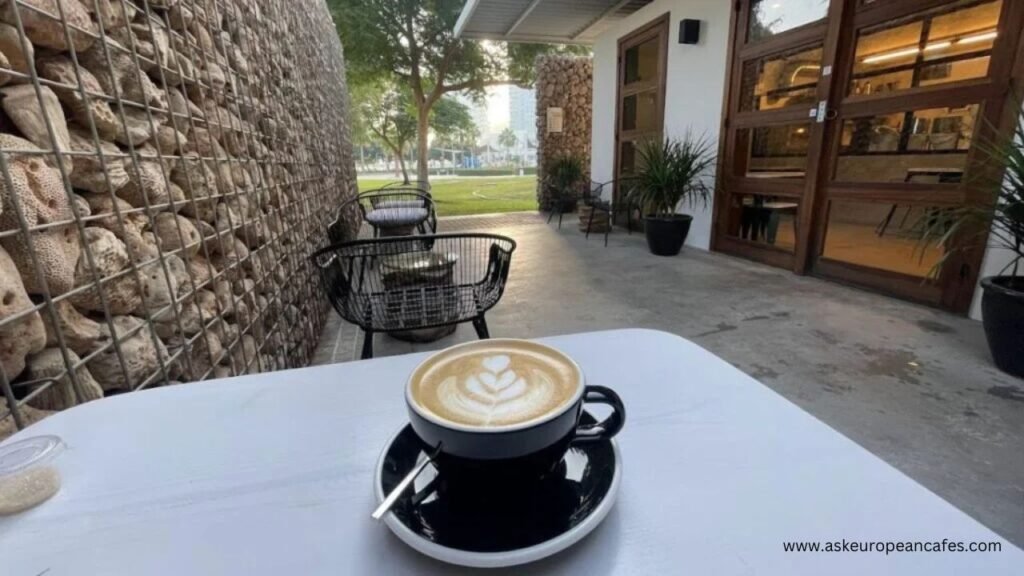Coffee from Portugal
When people think about coffee, they usually think of Brazil, Colombia or Ethiopia. But Portugal also enjoys a strong coffee culture, which started growing in 1874.
Although Portugal doesn’t grow much coffee it roasts and offers some of the best coffee in the world. In this article we will explore how Portugal became famous for its coffee what types of coffee people drink there and how this love for coffee began in 1874.
Coffee From Portugal
Look at Portugal

Portugal is a small country in southern Europe, next to Spain. Even though it doesn’t grow coffee on its land, Portugal has strong connections with coffee-growing countries especially through its former colonies like:
Portuguese colonists didn’t just import any old coffee, though. They brought in high-quality Arabica and Robusta beans.
Brazil
Angola
São Tomé and Príncipe
Timor (East Timor)
These places grow coffee, and Portugal has imported beans from them for many years.
Coffee Comes to Portugal
What Happened in 1874?
In 1874, something important began. This was the year when coffee became more popular in Portuguese cafes. Before that coffee was mostly enjoyed by the rich or used as medicine. But in 1874, coffee started becoming more Accessible to the general public. More cafes opened, and people started drinking coffee for fun and relaxation.
It became a daily habit. Friends would meet at a café to drink coffee read newspapers and talk about politics, art or football!
Brazil’s Connection

Portugal’s biggest coffee partner was Brazil. Brazil used to be a Portuguese colony and became one of the world’s top coffee producers. Even today most of Portugal’s coffee beans come from Brazil.
Because of this close connection, Portugal developed a strong taste for rich Brazilian coffee.
Famous Coffee Brands in Portugal
Coffee’s journey. Portugal has many local coffee brands that roast and sell coffee. Some of the most famous are:
| Coffee Brand | Founded In | Known For |
|---|---|---|
| Delta Cafés | 1961 | Portugal’s most famous coffee brand |
| Nicola | 18th century | Historic Lisbon café and coffee |
| Sical | 1947 | Smooth taste, common in homes |
| Buondi | 1986 | Modern, strong-flavor coffee |
Types of Coffee in Portugal
In Portugal, people love their coffee strong and small. Here are the most common types:
| Coffee Name | Description |
|---|---|
| Bica | Small, strong espresso (especially in Lisbon) |
| Café | Standard espresso (most common drink) |
| Galao | Coffee with lots of milk, like a latte |
| Meia de Leite | Half coffee, half milk, served in a cup |
| Descafeinado | Decaffeinated coffee for people avoiding caffeine |
Coffee Culture in Portugal
In Portugal, drinking coffee is more than just a habit. It’s a way of life.
- Morning: Many people start their day with a bica or galao.
- Work breaks: Workers take short coffee breaks called “pausa para café“.
- Evening: Friends meet at cafes to drink coffee and chat.
You will find small cafés on almost every street in cities like Lisbon, Porto, and Coimbra
Coffee in Portuguese Homes
At home, Portuguese families often drink coffee after meals. They may use:
- Espresso machines
- Moka pots
- Capsule coffee machines
Serving coffee to guests is a sign of hospitality and friendship
Coffee Import and Consumption
Here is a chart that shows the coffee import and consumption in Portugal over time:
| Year | Coffee Import (tons) | Coffee Consumption (cups per person per year) |
|---|---|---|
| 1874 | 500 | 10 |
| 1950 | 5,000 | 100 |
| 2000 | 35,000 | 200 |
| 2024 | 40,000 | 220 |
As you can see, both import and consumption of coffee in Portugal have increased a lot since 1874!
Why Portuguese Coffee Is Special

High Quality: Coffee is carefully roasted and served fresh.
Tradition: Every café has its own way of making it.
Culture: Coffee is part of social life.
Affordable: A small coffee usually costs less than €1!
Fun Facts
The word “bica” is used mainly in Lisbon. In Porto, people just say “café”.
Some cafés in Portugal are over 100 years old like Café A Brasileira in Lisbon.
Portugal drinks more coffee outside the home than many other countries.
Conclusion
Although Portugal is not a coffee-growing country, it has a deep love and history with coffee that started becoming popular in 1874. With strong links to Brazil and other former colonies Portugal created its own unique coffee culture.
Drinking coffee is a part of everyday life in Portugal whether at homeat work or in a cozy café.So next time you sip a cup of coffee remember that in Portugal, that little cup means history, culture, and connection.
FAQs
Q1: Does Portugal grow its own coffee?
No, Portugal does not grow much coffee because its climate is not right for coffee farming. Most of the coffee is imported from countries like Brazil, Angola, and East Timor.
Q2: When did coffee become popular in Portugal?
Coffee started becoming popular around 1874. This was when more cafés opened and ordinary people began drinking coffee every day.
Q3: Where does Portugal get its coffee from?
Portugal imports coffee mainly from Brazil, but also from Angola, São Tomé and Príncipe, and East Timor—countries that were once Portuguese colonies.
Q4: What is a “bica”?
A bica is a small, strong espresso-style coffee served in Lisbon. It is one of the most popular types of coffee in Portugal.
Q5: What is the difference between “galao” and “meia de leite”?
- Galao is coffee with lots of milk, served in a tall glass.
- Meia de leite is half coffee, half milk, served in a smaller cup.
Q6: What is the most popular coffee brand in Portugal?
The most famous coffee brand in Portugal is Delta Cafés. It started in 1961 and is loved across the country.
Q7: Is drinking coffee important in Portuguese culture?
Yes! Coffee is a big part of daily life. People meet at cafés to talk, relax, or take breaks from work. Coffee is also served to guests at home.
Q8: How much coffee does Portugal drink each year?
On average, Portuguese people drink about 220 cups per person per year. Most of these are small espresso-style coffees.
Q9: Is Portuguese coffee expensive?
No. In Portugal, a small coffee usually costs less than €1, even in cities. It is affordable and high quality.
Q10: Are there old and famous cafés in Portugal?
Yes! Some cafés, like Café A Brasileira in Lisbon and Majestic Café in Porto, are over 100 years old and are also famous tourist spots.


